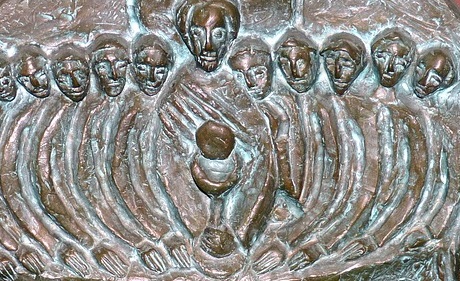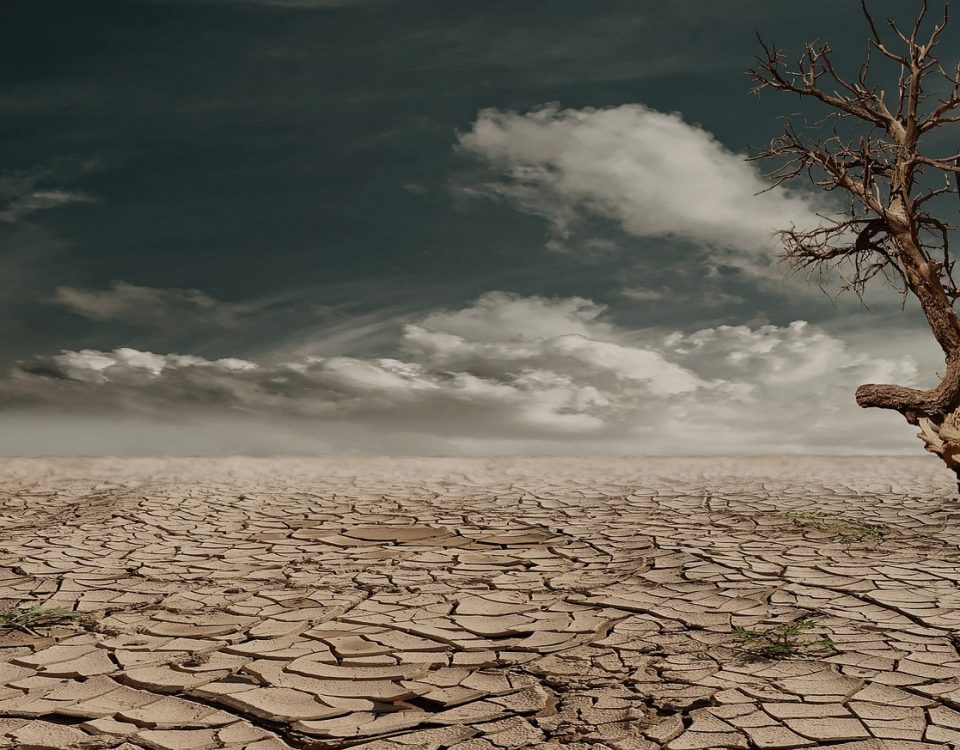The guardians of Plato’s just city had to be brave.
They had to be formed for courage; the whole of their education—an education of music and poetry and athletics—had to be designed for that very end, for leaders who would be brave. It was Socrates, of course, who outlined this education in Plato’s imaginary republic of justice, in a conversation he had with an interlocutor of his named Adeimantus.
And about bravery, Socrates began by asking a very interesting question. He asked, “Will anyone who in his heart fears death, ever be brave?” The answer come from Adeimantus was to the point: “Certainly not,” he said. And so, from that question, Socrates made his case against all those poets who portrayed death as horrible and the afterlife as “gloomy.” It was necessary for the development of courage, he said, that fear of death and the after-life be suppressed and even censored—if, that is, the guardians of the city were to be brave, brave enough to “prefer death in battle to defeat and slavery.”[1]
That’s what an education in courage looked like according to Socrates and Plato—the fear of death undone by better poets, poets who knew how to talk better about heaven and who knew how little a thing was death, too little to be feared; and how great a thing was courage, a thing essential to justice—essential to men and women called upon to do the right thing regardless of the danger. This was a necessary element in one’s education in justice. Without it there would be no such thing as justice—only cowardice, corruption, and ultimately slavery.
Now this, of course, is a universal feature of the sort courage born of human religions and of human longing in general for the transcendent. To despise death for the sake of some greater good is a virtue found throughout history and cultures. In Christianity the dismissal of death’s power goes all the way back to Jesus who said to his disciples that if they wanted to save their lives they would certainly lose them, but if they would lose their lives they would save them—“whoever does not take up his cross and follow…is not worthy of me,” he said.[2] Paul too, taunted death—“swallowed up in victory…Where, O death, is your sting?” he asked, I imagine with a sneer.[3] Even John the Revelator, in mystic vision, heard a voice out of heaven praising the martyrs, those whose “love for life did not deter them from death;” the devil “conquered…by the blood of the Lamb.”[4]
The belittling of death and the belittling of the fear of death: Socrates was right to see it as essential to justice. And the Christian claim, of course, is that we have found the means for such courage in the resurrection of Jesus and in what that resurrection means for us. It makes us, or it should make us, brave and fearless of death. It was Ignatius of Antioch, one of our early martyrs, who begged his brethren not to save him: “pray leave me to be a meal for the beasts,” he said, “for it is they who can provide my way to God.”[5]
But it’s not death itself Christians prize. It’s not some macabre fetish or some sort of death wish. Rather, it’s a life lived free from the fear of death, that fear which makes us make all those little concessions and compromises with evil, that fear which makes us go along with the masses; masses that may be as wrong as they are right, as evil as they can be good—subject to whim and not truth, to power and not goodness. It’s not death Christians seek, but freedom—freedom to love and to forgive, freedom for the peace which passes understanding, that peace that’s so much better than the negative negotiated and ultimately false peace of the world with all its violence.[6] We don’t seek out death, we just don’t think much of it. It’s of little account. It’s not enough to frighten us from the powerful love born of Christian freedom. “Like anybody, I would like to live a long life,” Dr. King said the night before his assassination. “But I’m not concerned about that now…Because I have been to the mountaintop…I’m not worried about anything. I’m not fearing any man. Mine eyes have seen the glory of the coming of the Lord.”[7] This is what I’m talking about—the freedom for love built upon faith in Christ and in the eternity which is his and which he gives us. It’s a freedom which gives us a supernatural courage of conviction. And it’s the only thing that has any sort of chance against the evil of this world.
Now I bring all this up because of the gospel we’ve just heard. It’s dark out when Jesus talks about love. Evil is afoot, and the betrayer is in business. But Jesus talks about love and about peace. He’s told them not to fear death, that death is part of the mystery of the kingdom and the victory of the Father. And he’ll soon tell them to expect the hatred of the world, but to keep on loving anyway. Don’t worry, he tells them in essence. “[T]ake courage, I have conquered the world.”[8] He says this in the darkness before his Golgotha. Be not afraid. Love anyway. It’s an eternal gospel, and its gospel for you.
And it is the mechanics of this courage and love which we find in this passage from John, a theological anatomy of Christian love. And it’s simple: To love Jesus is to be obedient to Jesus, to “keep” his word, he said. Love and obedience cannot be separated. And it’s a love which is also the presence of God. To the obedient lover, both the Son and the Father come and make their “dwelling with him.” And this is peace, real God-given peace. And it’s the only reason Jesus can dare to say to his disciples, huddled in fear, and to us, “Do not let your hearts be troubled or afraid.”[9] If you want real courage, if you want to rise above the fear and the fears which have crippled you, why not try love—not cheap sentimental love, but real love, obedient love? That’s what opens us to the presence of God and to his fearlessness and his righteous and real power. Love and obedience: if you’ve not tried it, you’ve not tried Christianity.
And so here we are, nigh on the end of Easter. And what have we become? My dad heard it long ago from an old preacher he once knew: We Christians must be Easter people in a Good Friday world. Now that’s true. We must as Wendell Berry said, “Practice resurrection.”[10] But that takes courage, a courage you can’t muster on your own. God’s got to give it to you, and he will as sure as the sun rises. But you must love him, and it can’t be just something you say. You’ve got to back it up. Love must be consecrated in obedience. And we can do this. We can be Easter people. We’ve just got to cut out all the excuses and shout “Alleluia!” like it’s a battle cry.
For heaven’s a kingdom, and you are its soldiers, you are its saints. So, let go of fear, and be brave, even in this darkening world. Remember you are Christians! It is your calling, and it is your privilege to be brave. Let’s do it together, and let’s send that stupid devil packing back to where he came from. Amen.
[1] Plato, The Republic 386b
[2] Matthew 10:38-39 passim
[3] 1 Corinthians 15:54-55
[4] Revelation 12:11
[5] Ignatius of Antioch, Letter to the Romans 4
[6] Philippians 4:7
[7] Martin Luther King, Jr., “I See the Promised Land,” I Have a Dream, 203
[8] John 16:33
[9] John 14:23-27
[10] Wendell Berry, “Manifesto: The Mad Farmer Liberation Front” (1973)
© 2019 Rev. Joshua J. Whitfield










